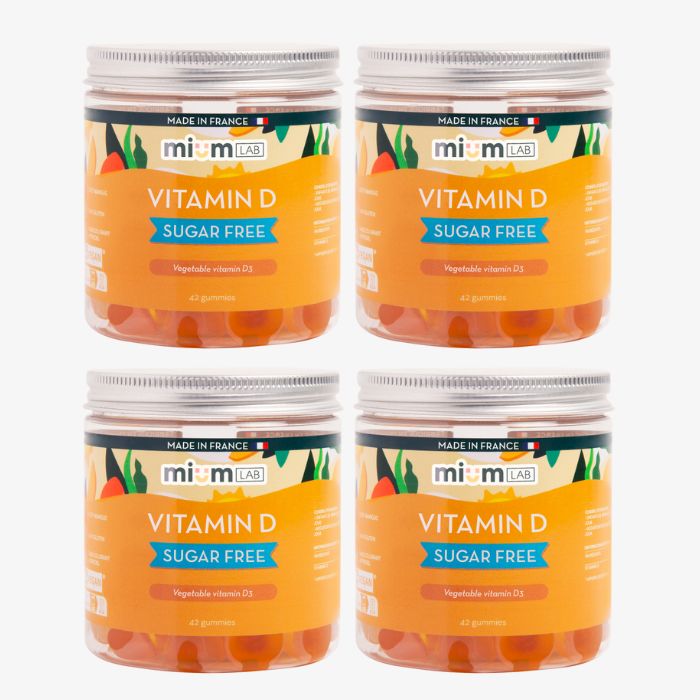2 products
-
SUGAR-FREE VITAMIN D GUMMIES | Bones Health | 21 days

 sugar freeVITAMIN D GUMMIES
sugar freeVITAMIN D GUMMIESVitamin D-based gummies to help the body function properly. Sugar-free formula.
Quick view
Why take Mium Lab vitamin D gummies?
What are the benefits of vitamin D?
The main role of vitamin D is to facilitate the intestinal absorption of calcium and to maintain optimal calcium and phosphorus levels in the blood, thus ensuring optimal bone mineralisation. Nonetheless, it is nowadays admitted that the role of vitamin D goes further than merely that of supporting bone health.
In actual fact, it is also involved in controlling numerous metabolic functions, such as the regulation of blood pressure or of the immune system. Studies have also suggested the involvement of this vitamin in hair growth and renewal.
Which foods are sources of vitamin D?
The vast majority of our vitamin D requirement is covered by the synthesis of vitamin D from cholesterol by the cells in the skin, following exposure to UV rays.
A small proportion of our requirement (approximately 20%) is covered by dietary sources, such as cod liver oil, oily fish (salmon, sardines, mackerel), eggs, meats, and dairy products.
How do you rectify a vitamin D deficiency?
As we have seen previously, the majority of our vitamin D requirement is covered by exposure to the sun (80% of our intake). In order for the synthesis of vitamin D to be effective, 15 to 20 minutes of exposure per day is recommended.
However, sometimes the level of sunlight is not sufficient to guarantee a sufficient intake of vitamin D (especially during the months between October and March). What's more, the vitamin D reserves present in the fatty tissue following exposure to strong sunlight are not always enough to cover the shortfall. Therefore, vitamin D supplementation, especially in winter, is certainly worth considering, and is recommended in persons at risk of insufficiency, or in case of limited exposure to sunlight.





